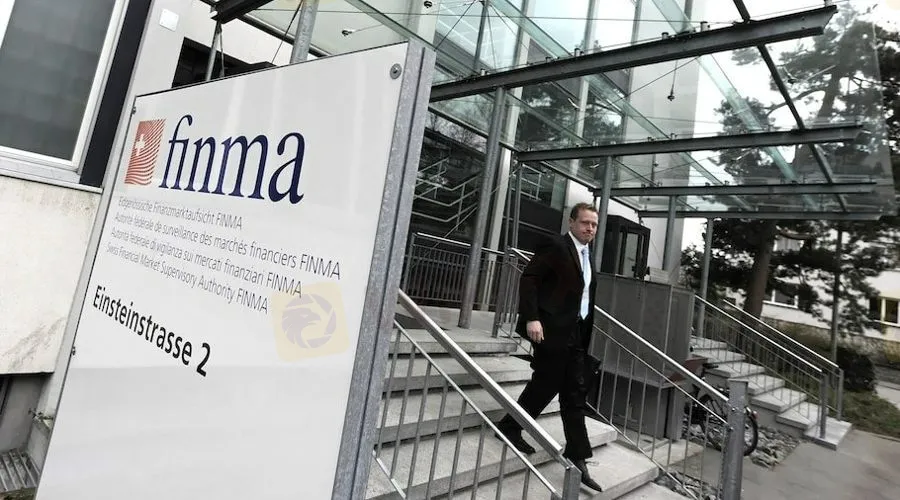简体中文
繁體中文
English
Pусский
日本語
ภาษาไทย
Tiếng Việt
Bahasa Indonesia
Español
हिन्दी
Filippiiniläinen
Français
Deutsch
Português
Türkçe
한국어
العربية
LCG Capital Markets Closes Due to FlowBank Bankruptcy
Abstract:LCG Capital Markets Limited, known as FlowBroker, ceases operations due to FlowBank SA's bankruptcy following FINMA's regulatory actions and the appointment of a liquidator.

LCG Capital Markets Limited, also known by its trade name “FlowBroker,” announced today that it will cease operations. The decision comes in the wake of bankruptcy proceedings against its parent company, FlowBank SA, launched by the Swiss Financial Market Supervisory Authority (FINMA) on June 13, 2024.
FINMA‘s actions were prompted by FlowBank’s failure to meet capital requirements, maintain organizational adequacy, and fulfill disclosure and reporting obligations. According to a statement, FINMA appointed Walder Wyss SA as the bankruptcy liquidator. The liquidation process is based at FlowBanks headquarters in Geneva.
“Due to significant agreements between LCG Capital Markets Limited and FlowBank SA, the appointment of the Liquidators has currently made it impossible for LCG Capital Markets Limited to carry out its operations,” the company stated.
LCG Capital Markets Limited has cited a “Force Majeure Event” under section 25 of its Terms and Conditions, which outlines scenarios preventing the company from fulfilling its obligations. The company added, “We may, in our reasonable opinion, determine that an emergency or an exceptional market condition exists which may prevent us from performing any or all of our obligations.”

The cessation of LCG Capital Markets Limiteds operations affects its clients who maintain funds with accounts at FlowBank SA.
The downfall of FlowBank SA is rooted in a series of regulatory breaches. FINMA initially intervened in October 2021, citing serious violations of supervisory laws, particularly regarding capital requirements and risk management. Subsequent measures included appointing an independent auditor and a monitor to oversee the banks activities. Despite these efforts, FlowBank continued to violate regulatory standards, including engaging in high-risk business relationships and inadequate financial reporting.
On March 8, 2024, FINMA withdrew FlowBank‘s license, disqualifying it from conducting proper business activities. The situation worsened when the bank’s financial statements revealed breaches of minimum capital requirements, leading to the opening of bankruptcy proceedings.
FlowBank, founded in 2020 by former LCG CEO Charles-Henri Sabet, offered services including cryptocurrency transactions and had strong ties with crypto asset manager CoinShares. However, FINMAs findings of over-indebtedness and regulatory violations led to its downfall.
FlowBanks bankruptcy affects its extensive client base, holding over 22,000 accounts with assets totaling nearly CHF 680 million. While deposits up to 100,000 Swiss francs are protected, the status of crypto deposits remains uncertain.

Disclaimer:
The views in this article only represent the author's personal views, and do not constitute investment advice on this platform. This platform does not guarantee the accuracy, completeness and timeliness of the information in the article, and will not be liable for any loss caused by the use of or reliance on the information in the article.
Read more

President of Liberland Vít Jedlička Confirms Attendance at WikiEXPO Hong Kong 2025
Vít Jedlička, President and Founder of the Free Republic of Liberland, has confirmed his participation in WikiEXPO Hong Kong 2025, one of the most influential Fintech summits in the industry. The event will bring together global leaders, innovators, and policymakers to delve into the future convergence of technology and society.

Is Billion Bucks Fx Scam?
Recent claims on YouTube and social media platforms allege that Billion Bucks Fx is a scam broker. Many traders have reportedly lost money after investing with this broker, and it has been given a notably low score of 1.06/10 by independent rating platforms. In this article, we break down the details of Billion Bucks Fx, assess the risks, and provide insight into whether investors should be wary of its services.

Could Japan Move Away from Ultra-Low Rates?
Japan's Interest Rate Hike: Is the Era of Ultra-Low Rates Over?

Fed Rate Cut Expectations Lowered
Federal Reserve officials have adjusted their rate cut expectations, now anticipating only one rate cut this year instead of the previously expected two.
WikiFX Broker
Latest News
Forex Market Outlook: Key Currency Pairs and Trading Strategies for March 24–28, 2025
Singapore Police Crack Down on Scams: $1.9M Seized, 25 Arrested
Gold Prices Swing Near Record Highs
XTB Opens New Dubai Office
The Growing Threat of Fake Emails and Phishing Scams
Africa Cybercrime Bust: Over 300 Arrested in Fraud Crackdown
Hong Kong Banks and Authorities Collaborate to Freeze Fraudulent Accounts Faster
SocialFi and the Forex Market: A New Era for Decentralized Social Trading?
Is Billion Bucks Fx Scam?
BaFin Halts USDe Token Issuance, Citing Serious Compliance Failures
Currency Calculator







